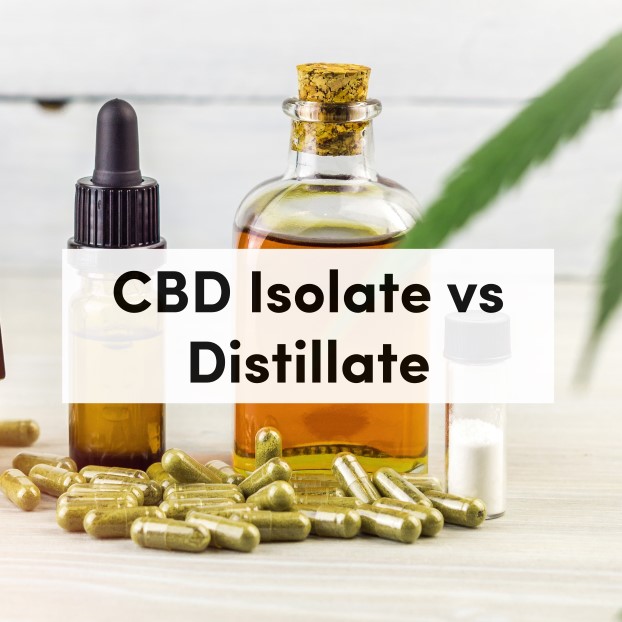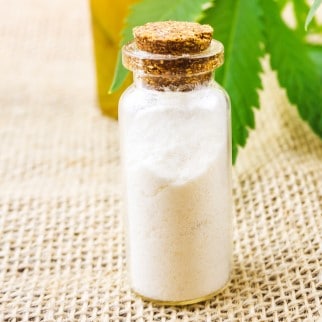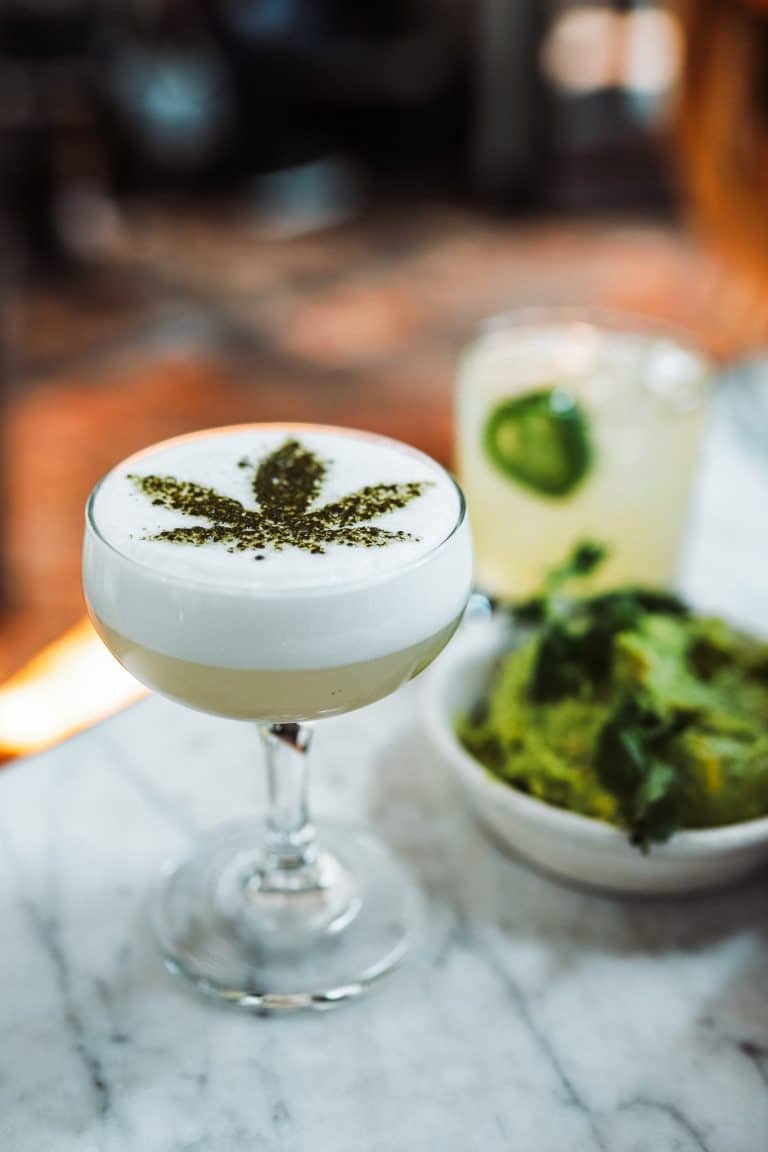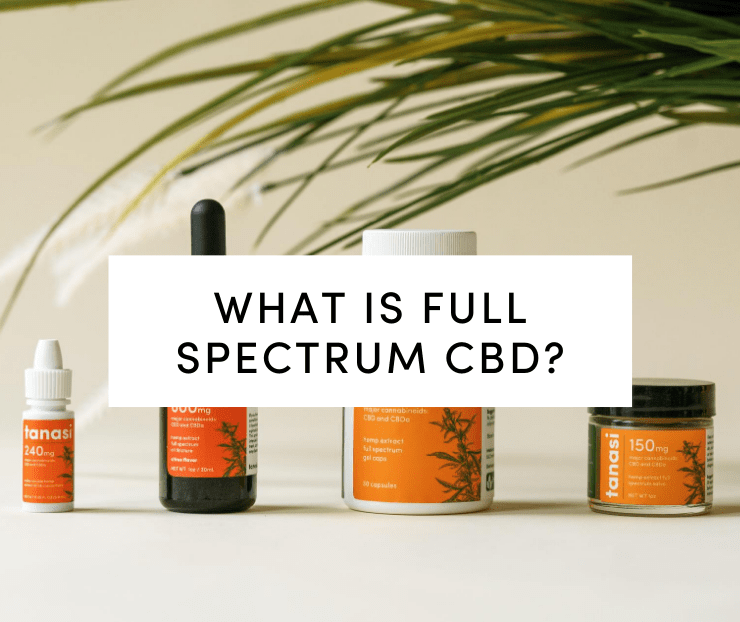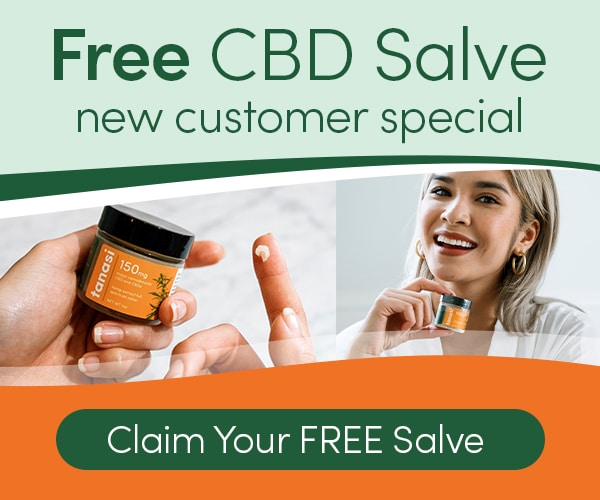Is Organic CBD Really That Much Better Than Non-Organic?
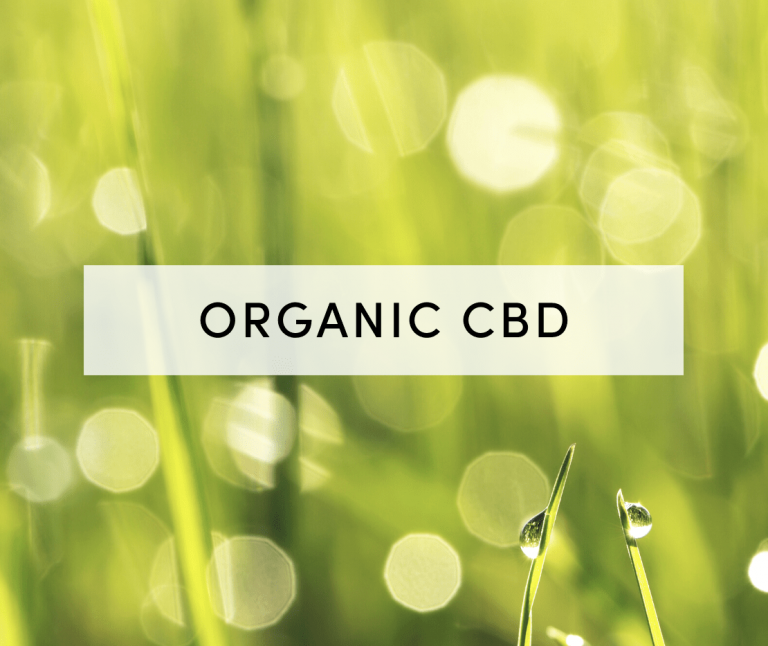
Posted on April 22nd, 2021
If you are shopping for CBD products for the first time, you may come across two terms: Organic CBD and Non-Organic CBD. You may instinctively choose the organic version because you know in the back of your mind that it will be healthier. On the other hand, non-organic sounds cheap. Well, in terms of CBD production, these two varieties differ in how they grow, how farmers harvest them, and the benefits of finally using them as CBD products. But before you blindly choose organic CBD, you should know why it is beneficial and what makes its non-organic counterpart the poorer option.
What Makes Organic CBD Organic
This is similar to buying organic fruits and vegetables from your local grocery store. You buy them because you know that their quality is better. Similarly, CBD products certified as organic have a higher quality standard than their non-organic counterparts. And achieving this quality standard doesn’t just come from growing CBD without using chemical pesticides and fertilizers. In fact, the farmers must grow the hemp under specific conditions set by the U.S. Department of Agriculture. Your CBD product will get an organic label if it follows these guidelines to the T.
Per the USDA guidelines, the journey towards getting an organic label starts from the field. The first and most crucial condition is that the farmers shouldn’t grow hemp where the soil has been treated with certain banned substances for the last three years. Additionally, the farmers cannot use synthetic additives to boost growth. The crop must grow naturally. Apart from not using synthetic additives and chemical fertilizers and pesticides, the farmers should also maintain the soil through crop rotation technique. They must use natural fertilizers, and natural ground tilting. Lastly, the USDA also prohibits the use of genetic engineering. This means your organic CBD products will not come from genetically modified plants/seeds.
Additional Organic Guidelines
In fact, the guidelines don’t end with the growing process. The USDA has various guidelines once farmers finish harvesting the hemp. They then have to send their produce for strict quality checks. Most importantly, all non-agricultural ingredients involved in the making of hemp must meet the quality standards on the federal list. The National List of Allowed and Prohibited Substances contains a list of items that come under the “prohibited” column. If farmers use any of the non-agricultural ingredients mentioned on that list, their hemp will not get the organic label.
Hemp handlers also need to pay attention when they are harvesting hemp. They should always keep organic and non-organic hemp separate and keep non-organic substances away from the area where they are growing organic hemp. Cross-contamination will eventually ruin a huge batch of organic crops.
 Organic vs Non-Organic
Organic vs Non-Organic
It goes without saying that organic hemp is better than non-organic CBD. First of all, organic CBD doesn’t contain preservatives or fillers. Farmers produce these crops under strict supervision, leaving hardly any time between harvest and extraction.
Moreover, most companies use solvents to extract non-organic CBD. That doesn’t happen with organic CBD. Manufacturers use CO2 extraction method, which provides the purest form of CBD, to extract from organic hemp. The CO2 extraction method extracts the most potent part of CBD without requiring the use of heat or harsh solvents. You will often notice companies selling their products as full-spectrum CBD. This extraction method helps to produce full-spectrum CBD that is more potent than non-organic CBD.
Testing
Organic hemp goes through a series of tests before it finally gets the organic tag. A thorough laboratory analysis checks the profile of cannabidiol. The final product should not contain even 0.1% of heavy metals or microscopically low counts of contaminants. This type of product is far better than non-organic hemp because it doesn’t contain toxic chemicals. It doesn’t impact the environment negatively, and doesn’t contain chemical pesticides and fertilizers. You can count on its quality and efficacy because it contains the purest form of CBD.
You should check the manufacturer’s website for the farming process. Most reputable brands provide detailed information about how they harvest their hemp. Check if they say anything about organic farming practices and using non-GMO hemp plants.
It is wise to buy CBD products from a brand that organically grows hemp. Hemp is a natural bioremediator. It means that hemp plants can draw metals and toxins from the soil. Although this is useful for your soil, it’s not good for the final hemp products. You should always ensure that the CBD extracted from the hemp doesn’t contain metals and toxins. That’s the biggest difference between organic and non-organic CBD. Non-organic CBD comes from soil treated with synthetic fertilizers and chemical pesticides. They have a higher percentage of metals and toxins.
 Benefits of Organic CBD
Benefits of Organic CBD
Buying organic CBD products doesn’t just mean you are consuming high-quality, full-spectrum CBD. You should also appreciate the hard work put in by farmers to ensure that the hemp maintains the quality throughout the harvesting, testing, extraction, and testing processes. Here are a few reasons why organic CBD is beneficial for users:
-
High-quality fields
Most people pay attention to the final CBD product and its efficacy. But a lot goes on in the field that they don’t know about. First of all, using chemical pesticides sprayed on the fields destroy pretty much everything except the hemp plants. This means the soil loses its beneficial microbes over time.
You may receive a CBD product that seems effective, but it takes a longer period to show its effects than organic hemp products. Moreover, using chemical fertilizers and pesticides takes away essential nutrients from the soil. However, organic farming methods don’t follow these techniques. They retain the nutrition and fertility of the soil. It means you can use the same piece of land to grow hemp for many years.
-
More pollinators
The problem with synthetic or chemical pesticides is they can’t differentiate between good and bad pests. Therefore, they end up killing most of the pollinators, thus disrupting the ecosystem. But organic hemp farming maintains biodiversity. It repels harmful pests and keeps the good insects to help in pollination. As a result, no part of the ecosystem dies or gets disrupted.
-
Health benefits
Organic CBD contains the purest form of CBD. Full-spectrum CBD has many potential health benefits, such as reducing inflammation and pain in your joints, reducing stress and anxiety, and improving your quality of sleep. People turn to CBD products because of its reported widespread benefits. But they often don’t realize that they are using non-organic CBD products that take a relatively longer time than their organic counterparts to produce the results.
-
Fewer superbugs
Another drawback of using synthetic pesticides in hemp soil is it gives rise to various super strains of microbes. Germs can adapt to this type of soil pretty quickly. They will eventually become immune to synthetic pesticides and continue to grow and become stronger until no pesticide can kill them. They will remain in the soil for years and eat away its essential nutrients.
Organic pesticides don’t support such behavior. They get rid of the bad insects and don’t let them come back until the harvesting process is over. These pesticides repel pests instead of killing them. Thus, they don’t create an opportunity for the pests to develop super strains later.
-
Eco-friendly
Chemical fertilizers and pesticides eventually seep through the soil, mix with water, and flow into the seas and oceans. This can harm the underwater flora and fauna and affect their biodiversity. Organic hemp farming methods don’t have such risks.
Possible Danger of Non-Organic CBD
As already mentioned, non-organic CBD contains metals and toxins because they don’t necessarily go through the strict harvesting and testing methods. Sure, you may not see any immediate adverse effects, but these products take time to deliver their results. For example, you may notice the effects of non-organic CBD products after a couple of weeks while its organic counterpart starts delivering results from the first or second dose.
Additionally, non-organic CBD is harmful for your soil and the environment. Sure, you extract a high percentage of non-organic CBD after the first year. But you may not realize that the CBD’s quality will start deteriorating from the second year because the soil slowly loses its nutrients.
If you want to buy organic CBD products without spending a fortune, check out the range of items available at Tanasi. It contains various full-spectrum CBD products that are highly effective.

